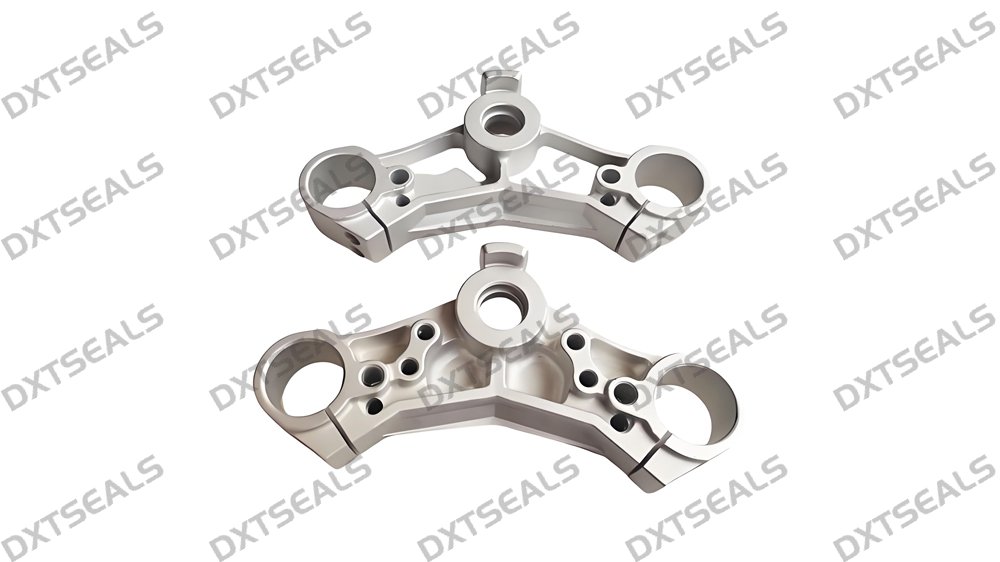
When choosing materials for sealing structures, housings, and mechanical components, aluminum alloys and stainless steels are two of the most widely used options. Each offers unique advantages in terms of strength, weight, corrosion resistance, and cost, making the choice highly dependent on the application.
This article from DXTSEALS compares aluminum alloys and stainless steels in terms of strength and weight, and provides practical selection factors for engineers and designers.
1. Strength Comparison: Aluminum Alloy vs Stainless Steel
-
Aluminum Alloys
-
Tensile strength: ~90–400 MPa (depending on alloy grade and treatment)
-
Lower strength compared to stainless steel
-
Suitable for lightweight structures, but limited in high-load applications
-
-
Stainless Steels (304/316)
-
Tensile strength: ~500–800 MPa
-
Much higher strength than aluminum alloys
-
Ideal for high-pressure, high-load sealing environments
-
👉 Conclusion: Stainless steel outperforms aluminum alloy in strength, making it more reliable in heavy-duty applications.
2. Weight Comparison: Aluminum Alloy vs Stainless Steel
-
Aluminum Alloys
-
Density: ~2.7 g/cm³
-
About one-third the weight of stainless steel
-
Excellent choice when weight reduction is critical (e.g., aerospace, automotive, portable equipment)
-
-
Stainless Steels
-
Density: ~7.8 g/cm³
-
Much heavier than aluminum
-
Provides structural stability, but may increase total system weight
-
👉 Conclusion: Aluminum alloys are preferred in lightweight design, while stainless steel is better for strength-driven applications.
3. Other Factors to Consider in Material Selection
While strength and weight are key parameters, several other factors influence the choice between aluminum alloy and stainless steel in sealing applications:
(1) Corrosion Resistance
-
Aluminum Alloys: Naturally form a thin oxide layer; good resistance but vulnerable to strong acids/alkalis.
-
Stainless Steel (304/316): Excellent corrosion resistance, especially in marine, chemical, and high-humidity environments.
(2) Cost Efficiency
-
Aluminum Alloys: Generally cheaper per kg, but may require surface treatment (anodizing) for durability.
-
Stainless Steel: Higher initial cost, but longer service life and lower maintenance.
(3) Machinability & Processing
-
Aluminum Alloys: Easier to machine, weld, and form; suitable for complex geometries.
-
Stainless Steel: More difficult to machine; higher tool wear, but ensures precision and durability.
(4) Application Environment
-
Aluminum Alloys: Best for low to medium load, lightweight, and non-corrosive environments.
-
Stainless Steel: Best for high load, corrosive, or high-pressure sealing systems.
4. Quick Comparison Table
| Property | Aluminum Alloy | Stainless Steel (304/316) |
|---|---|---|
| Strength | Low to medium (90–400 MPa) | High (500–800 MPa) |
| Weight | Lightweight (~2.7 g/cm³) | Heavy (~7.8 g/cm³) |
| Corrosion Resistance | Good, limited in harsh media | Excellent, ideal for harsh environments |
| Cost | Lower | Higher |
| Machinability | Easy | Difficult, higher tool wear |
| Best Applications | Aerospace, automotive, portable devices | Oil & gas, marine, heavy machinery |
5. Practical Selection Advice from DXTSEALS
-
If weight reduction is the top priority → choose aluminum alloys.
-
If strength and durability are more important → choose stainless steel.
-
For corrosive or high-pressure sealing environments, stainless steel is recommended.
-
Consider cost-performance balance: aluminum alloys may require more frequent replacement, while stainless steel offers long-term reliability.
6. Conclusion
Both aluminum alloys and stainless steels play important roles in sealing and engineering applications.
-
Aluminum alloys are best when lightweight design and cost-efficiency are key.
-
Stainless steels excel in strength, durability, and corrosion resistance for demanding environments.
By evaluating strength, weight, corrosion resistance, and cost, engineers can make better decisions for seal housings, flanges, and structural parts.
📩 For expert consultation on metal material selection for sealing applications, contact DXTSEALS today.
